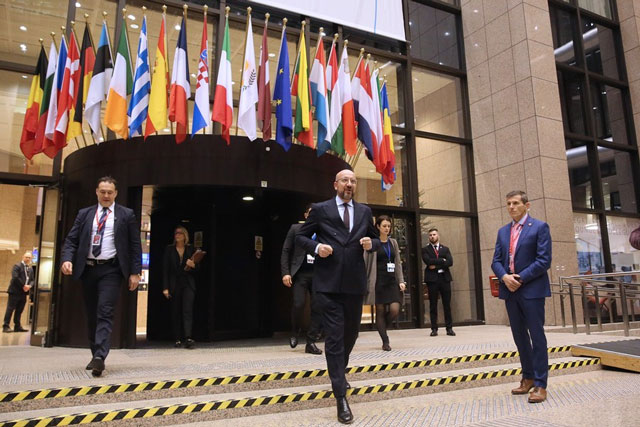
BRATISLAVA | Xinhua | Europe and China have common interests in several areas, such as climate, trade and technology, and the cooperation between the European Union (EU) and China is vital, a Slovakian economic expert told Xinhua in a recent interview.
Juraj Sipko, former head of the Institute of Economic Research at the Slovak Academy of Sciences, said the world is currently facing three systemic shocks: climate change, the after-effects of the coronavirus pandemic, and numerous conflicts. The combined results of these shocks have led to geoeconomic blocks and global fragmentation.
Noting that the world economy is currently plagued by “very low economic growth, very high interest rates, very high inflation, and very high public debt,” the expert stressed that international cooperation is the only way to counter the global trend of fragmentation.
The EU and China can benefit from working together with and learning from each other, not only in the field of trade but also in all areas of life, Sipko said.
Once served as the director of international relations at the Slovak Ministry of Finance, and a negotiator with the EU and the Organization of Economic Cooperation and Development, Sipko has frequently visited China to gain first-hand experience and a “real picture of the local economy based on data analysis.”
With global fragmentation on the rise, “China’s efforts of promoting cooperation and building infrastructure abroad play a significant role in the global economy,” he said.
In his view, China is one of the key players actively pursuing international cooperation with the others. He said China is one of the few countries that is “self-reliant” and able to extend support to others thanks to its substantial wealth fund and foreign exchange reserves.
With an average 30 percent share of contribution to global GDP growth per year over the past decade, and a similar forecast for the future, China will be able to continue investing – mostly in low-income countries and developing countries – under its Belt and Road Initiative, he noted.
“Even international institutions encourage China to help finance the process of restructuring of public debt in these countries,” Sipko said.
The former advisor to the governor of the Slovak National Bank mentioned examples like China’s financial aid to the floods-hit Pakistan in 2022 and China’s infrastructure-building activities not only in developing countries but also in Europe.
China has managed to significantly reduce poverty in the past decades which will “increase the purchasing power parity of its middle-income class,” Sipko said.
China’s domestic demand will be the main driving force as the country continually shifts its growth model from quantity to quality thanks to “robotization, automatization, digitalization and technology innovation improvements,” he said, while recommending China increasing its productive investment to stay competitive as many of its products are highly demanded abroad.
Regarding the intensity of the devastation of global climate change to many countries and industries, which is digging deep into national budgets and threatening financial stability, Sipko underlined: “The only way is to cooperate.”
“Now that the current civilization is facing many challenges, risks, and an existential threat, it’s not time for a strategy of isolation, but for fruitful and mutual cooperation in favor of all people living on this lovely planet,” Sipko concluded. ■
 The Independent Uganda: You get the Truth we Pay the Price
The Independent Uganda: You get the Truth we Pay the Price


